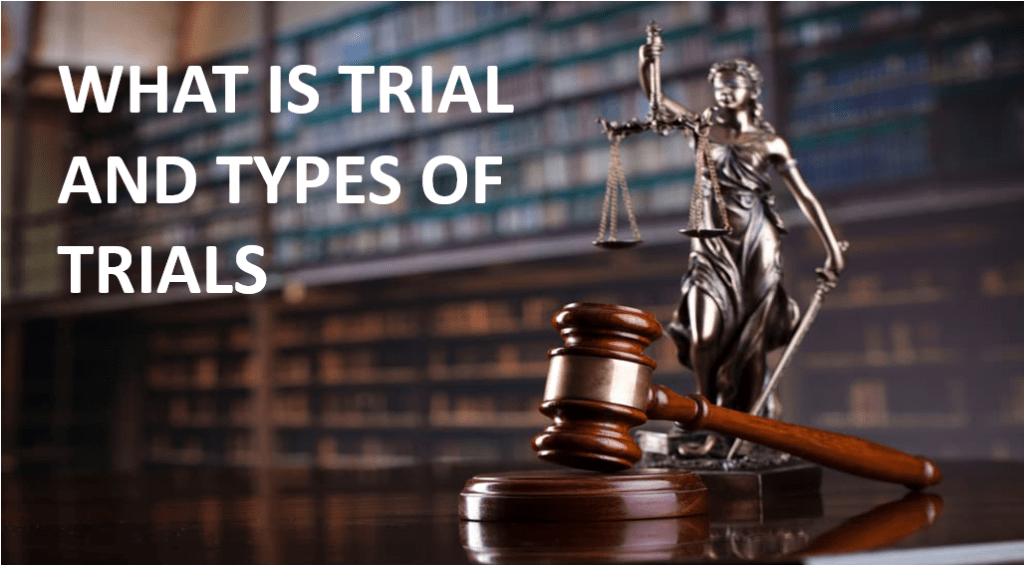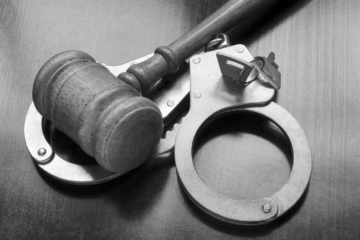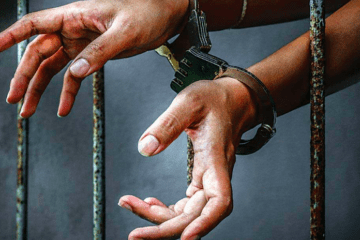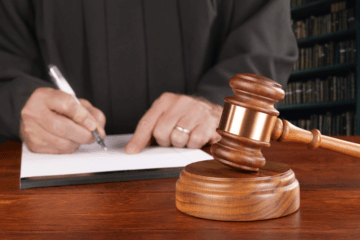
This article is written by Kratika Singhal of 3rd Year of Government Law College Kota, Rajasthan, an intern under Legal Vidhiya
Abstract:
This article elaborates the importance of the trials and types of trials. It is an attempt to determine the answer of the only question that arises in the minds of that what the procedure for a trial is to be done. This is a crucial task for the authorities to take charge of the criminals. In this article, we have discussed the meaning of the term ‘trial’, types of Trials under Criminal Procedure Code, 1973, the procedures under these trials, some General Provisions and the related case Laws. In a legal sense, A trial is an effort to discover “what had really happened”, and is a simulation of the event, which took place, way back in the past. Therefore, it is imperative to study various aspects of judgement from a judicial point of view.
Keywords: Jurisdiction, cognizance, contention, non-bailable, warrant, humiliated, summon, voyage, abduction, allegations, substantive, deterrence.
Introduction:
The foremost objective of criminal law is to protect the society from law hinderers, lawbreakers and criminals. For that, the law issues punishment threats to potential lawbreakers as well as make attempt to make actual offenders suffer the punishment for their crimes. Our legal system’s criminal law is primarily contained in the Code of Criminal Procedure, 1973, which came into effect on April 1, 1974. The offenses are contained in the First Schedule, and several forms are included in the Second Schedules.
What is a Trial?
A trial is a search for the truth. For all engaged in it, the task is for reconstruction of past events, across all kinds of entrapments and startling contradictions. A trial is an effort to discover “what had really happened”, and is a simulation of the event, which took place, way back in the past. The word “trial” is not described anywhere in the Criminal Procedure Code; but, it means a commonly understood stage of trial which begins after framing the charge and ends with the acquittal or conviction. In simple words, trial is defined as a formal examination of the evidences by a judge, typically before a jury, in order to decide guilt in a case of civil or criminal proceedings.
He also has to take care that the punishment should be severe enough to deter but not too severe that it becomes brutal and it should be moderate enough to be human but not too moderate to that it becomes ineffective. It has to be designed so as to reform the offender for his good as well as of the society, so the Judge while pronouncing the sentence has to maintain a delicate and nice balance.
Types of Trial in Indian Legal System
The trial of the accused in the Indian Criminal Law is divided through the punishments of committed offense. The Trial of the accused is divided into four types:
- Session Trial
- Warrant Trial
- Summons Trial
- Summary Trial
What is Criminal Trial?
The Criminal trial is designed to solve accusations levied (usually by the State) against a person accused. The rights afforded to criminal defendants are typically vast. A criminal trial can be acknowledged by the procedural understanding of the functioning of criminal courts, it is a stage that begins after framing the charge and ends with acquittal or conviction.
Legal Provisions for the Trials in Criminal Procedure Code
- Sec 225-237 deal with trial of warrant cases by a Court of Session.
- Sec 238-250 deal with trial of warrant cases by magistrates.
- Sections 251-259 provides procedure for trial of summons cases by magistrates.
- Sections 260-265 make provisions relating to summary trials.
Session Trial
If offense committed is punishable with greater than seven years of imprisonment or Life imprisonment or Death, the trial is to be conducted in the Court of Session after being forwarded to the court by the magistrate.
(Sec 225-237 of the Criminal Procedure Code, 1973 deals with trial of warrant cases by a Court of Session.)
Procedure for Session Trial
A trial is initiated by the prosecution who tries to prove the guilt of the accused through the evidences. [1]Section 225 of Criminal Procedure Code, 1973 emphasises that the case of prosecution shall be conducted by the Public Prosecutor where the trial is before the Session Court. As per [2]section 226 of Criminal Procedure Code, 1973 requires the public prosecutor to open up his case by describing the charges against accused with evidence through which the prosecution will prove the accused guilty.
[3]Section 227 of Criminal Procedure Code, 1973 empowers the Judge to discharge an accused if after consideration of the documents and records submitted against the accused and after hearing prosecution and accused, the judge finds that there are no sufficient grounds to proceed against accused.
Under [4]section 229 of Criminal Procedure Code, 1973, an accused may plead guilty before Court and upon such pleading, the Court on his own may convict the accused.
Where the accused does not plead guilty, the Court is required to fix a date for the examination of the witnesses. And the Court shall take the evidence which may be produced by the prosecution on such date. A witness will be examined orally. A judge under [5]section 231(2) of Criminal Procedure Code, 1973 may defer the cross-examination of any witness and may also recall any witness for further cross-examination.
Under [6]section 232 of Criminal Procedure Code, 1973, an accused can be acquitted if the Court after hearing both the parties and considering all the evidences, considers that there is no single evidence which proves the commission of the alleged offence by the accused. The accused in defence may apply for an issue of any process to compel the attendance of any witness or production of any documents. The Judge is required to consider all such applications but can also refuse it if the Judge has reasons to believe that such application is vexatious or is for the purpose of defeating the means of justice.
A Court after hearing the arguments shall pronounce the judgment under [7]section 235 of Criminal Procedure Code, 1973. An accused may be either convicted or acquitted. A judge shall pass the sentence of conviction according to the law.
Warrant Trial
The Warrant case includes an offence punishable with the death, imprisonment for life and imprisonment of more than two years. A trial in a warrant case that begins either by filing an FIR in a Police Station or by filing it before the Magistrate.
(Sec 238-250 of Criminal Procedure Code, 1973 deals with trial of warrant cases by magistrates.)
PROCEDURE FOR WARRANT TRIAL
[8]Section 207 of Criminal Procedure Code, 1973: On the institution of any warrant case the accused must be provided with a copy of the police report and other documents when the accused appears or is brought before Magistrate at the start of trial.
Framing of charges ([9]Section 240 of Criminal Procedure Code, 1973):
If the Magistrate is of the opinion that there is some ground to believe that the accused has committed the offense and is competent to try such offense then in his opinion he may sufficiently punish the accused. Then the charges will be framed against the accused in writing and the trial will begin.
If the accused denies to be guilty and claims to be prosecuted, the Magistrate shall fix the date for examination of the witnesses under [10]Section 247 of Criminal Procedure Code, 1973.
Statement of Accused (Section 313 of Criminal Procedure Code, 1973):
Under [11]Section 313 of Criminal Procedure Code, 1973 accused is examined to explain the circumstances appearing in evidence of the case against him. During the examining of the accused the questions and answer which is given by the accused is recorded.
Evidence for Defense (Section 243 of Criminal Procedure Code, 1973):
Under [12]section 243 of Criminal Procedure Code, 1973; prosecution witnesses, the defense witnesses are produced by the accused, the expenses on coercing the appearance of the witnesses shall be borne by the accused.
Argument and Judgement:
The last two stages consist of argument and judgement by the Magistrate. The argument is when the defence completes with their evidence, and Prosecutor sum up the case and the accused or his lawyer has to rely on it. After the argument, the next stage is conviction or acquittal of the accused by the Magistrate.
Summons Trial
If the offense committed is punishable with less than two years of imprisonment, then it is known as a summon case. In respect of this offense, it is not necessary to frame the charges. The Summon is issued by Magistrate to the accused under [13]section 204(1)(a) of Criminal Procedure Code, 1973. “Summon case” is defined as a case relating to offense, not a warrant case. The procedure to deal with such matters is described in section 251 to 259 of Criminal Procedure Code, 1973 which is not as serious like other trials.
(Sections 251-259 of Criminal Procedure Code, 1973 emphasises the procedure for trial of summons cases by magistrates.)
What is the procedure of trial in summon-cases?
Under [14]section 251 of Criminal Procedure Code 1973 courts shall ask the accused whether the accused pleads guilty. Section 252 and 253 of Criminal Procedure Code 1973 needs to comply for conviction on such plea of guilty.
Conviction on plea of guilty
[15]Section 252 and 253 of Criminal Procedure Code 1973 provides conviction on the plea of guilty. Section 252 of Criminal Procedure Code 1973 provides plea of guilty in general cases and section 253 of Criminal Procedure Code 1973 provides plea of guilty in case of the petty cases. In case the accused pleads guilty, the answer is affirmative. In accordance with law, the court will record plea in the exact words of the accused on the basis of which the accused can be convicted on the discretion of the Court. If not affirmative then the court needs to proceed further with Section 254 of Criminal Procedure Code 1973.
If the accused pleads guilty, and the charges against him do not constitute any offense then mere plea will not amount to the conviction of the accused. As the magistrate has the discretion to convict on the plea or not, if on plea the accused is convicted than the magistrate shall proceed according to [16]section 360 of Criminal Procedure Code 1973 else hear the accused on the question of sentence and sentence him according to law. If the plea of guilty is not accepted then the magistrate shall proceed according to section 254 of Criminal Procedure Code 1973.
What is the procedure if the accused not convicted on plea?
[17]Section 254 of the Criminal Procedure Code, 1973 provides about both prosecution and defense cases if the accused is not convicted on plea under section 252 and 253 of the Criminal Procedure Code, 1973.
Prosecution case
The magistrate will hear the accused and will take all the evidences. In hearing, the prosecution will be given a chance to open its case by putting facts and factuals of the case and by revealing the evidence which he relied upon to prove the case. The magistrate on the application of the prosecution, serves the summon to any witness to attend and to produce any document or thing.
The magistrate will prepare memorandum of the evidence according to section 274 of the Criminal Procedure Code, 1973. Same as other trials in summon cases also the magistrate will comply with [18]section 279 of the Criminal Procedure Code, 1973 i.e., interpretation of evidence to the accused and section 280 of the Criminal Procedure Code, 1973 i.e., recording of the aspects of the witnesses.
Hearing of the defence: (Defense Case)
After the prosecution, evidence under section 254 of the Criminal Procedure Code, 1973 and examination of defense under [19]section 313 of the Criminal Procedure Code, 1973, in the continuance of this, the court will proceed with the defense hearing under section 254 of the Criminal Procedure Code, 1973. In the hearing the defendant is asked to testify against the evidence of the prosecution.
Failure of hearing of the accused in any case will amount to the fundamental error in the criminal trial and it cannot be cured under [20]section 465 of the Criminal Procedure Code, 1973. Evidence produced by the accused will be recorded in the same manner as in case of prosecution under section 274, 279, 280 of the Criminal Procedure Code, 1973. After the submission of the evidence of the defense, he will be allowed to submit his arguments under section 314 of the Criminal Procedure Code, 1973.
Acquittal or Conviction
After recording the evidence under section 254 of the Criminal Procedure Code, 1973 the magistrate will acquit the accused if he finds the accused not guilty. If the accused is guilty than Magistrate shall proceed according to Section 360 or 325 of the Criminal Procedure Code, 1973 otherwise, sentence him according to the law.
Summary Trial
Those trials in which cases are disposed of speedily with a procedure to follow and recording of such trials are done summarily. In this trial, only small cases are taken in hand and complicated cases are reserved for warrant and summon trials. Legal Provisions for summary trial are given under Section 260-265 of the Criminal Procedure Code, 1973.
Procedure of Summary Trial
Chapter XXI of the Code of Criminal Procedure,1973 begins with Section 260 and ends with Section 265L, which governs Summary Trial. The most important objective of summary trial is to dispose the cases speedily.
[21]Section 262 of Criminal Procedure Code, 1973 emphasizes the procedure to be followed under summary trial is similar to the procedure specified for summon trail. If the penalty is less than two hundred rupees, no chance of appeal will be given.
[22]Section 264 of Criminal Procedure Code, 1973 emphasizes that in each case of summary trial, if the accused is not guilty, the magistrate will record the substance of the evidence and the judgement given must also contain a brief description of the reason for coming to a particular finding.
[23]Section 265 of Criminal Procedure Code, 1973 emphasizes that every such record i.e. the details mentioned in Section 263 of Criminal Procedure Code, 1973 and the substance of evidence and judgment should be recorded in the court’s language.
Conclusion
The Code of Criminal Procedure,1973 provides an opportunity for the accused for fair trial and makes an appreciable effort to avoid any kind of delay in trial or investigation. The Judge in every case must ensure that the accused is given a fair opportunity of hearing and defending his case in the best possible manner. The Code of Criminal Procedure,1973 also provides for a legal aid to an accused who is unable to engage a lawyer in his case for the compliance with the constitutional requirements and also as required by Section 304 of Code of Criminal Procedure,1973 so that any person accused of committing an offense is not wrongly convicted and proper justice is served.
References
- https://prepp.in/news/e-492-code-of-criminal-procedure-crpc-indian-polity-notes
- https://www.legalserviceindia.com/lawyers/lawyers_home.htm#google_vignette
- www.davidsirr.com/legal/article-11085-types-of-trial-in-criminal-cases.html/
- https://legalformatsindia.com/types-of-criminal-trials/
- https://blog.ipleaders.in/types-of-trials-in-crpc/
- https://en.wikipedia.org/wiki/Trial/
[1]Code of Criminal Procedure, 1973, § 225, No. 2, Acts of Parliament, 1973 (India)
[2] Code of Criminal Procedure, 1973, § 226, No. 2, Acts of Parliament, 1973 (India)
[3] Code of Criminal Procedure, 1973, § 227, No. 2, Acts of Parliament, 1973 (India)
[4] Code of Criminal Procedure, 1973, § 229, No. 2, Acts of Parliament, 1973 (India)
[5] Code of Criminal Procedure, 1973, § 231, No. 2, Acts of Parliament, 1973 (India)
[6] Code of Criminal Procedure, 1973, § 232, No. 2, Acts of Parliament, 1973 (India)
[7] Code of Criminal Procedure, 1973, § 235, No. 2, Acts of Parliament, 1973 (India)
[8] Code of Criminal Procedure, 1973, § 207, No. 2, Acts of Parliament, 1973 (India)
[9] Code of Criminal Procedure, 1973, § 240, No. 2, Acts of Parliament, 1973 (India)
[10] Code of Criminal Procedure, 1973, § 247, No. 2, Acts of Parliament, 1973 (India)
[11] Code of Criminal Procedure, 1973, § 313, No. 2, Acts of Parliament, 1973 (India)
[12] Code of Criminal Procedure, 1973, § 243, No. 2, Acts of Parliament, 1973 (India)
[13] Code of Criminal Procedure, 1973, § 204(1)(a), No. 2, Acts of Parliament, 1973 (India)
[14] Code of Criminal Procedure, 1973, § 251, No. 2, Acts of Parliament, 1973 (India)
[15] Code of Criminal Procedure, 1973, § 252 and § 253, No. 2, Acts of Parliament, 1973 (India)
[16] Code of Criminal Procedure, 1973, § 360, No. 2, Acts of Parliament, 1973 (India)
[17] Code of Criminal Procedure, 1973, § 254, No. 2, Acts of Parliament, 1973 (India)
[18] Code of Criminal Procedure, 1973, § 279, No. 2, Acts of Parliament, 1973 (India)
[19] Code of Criminal Procedure, 1973, § 313, No. 2, Acts of Parliament, 1973 (India)
[20] Code of Criminal Procedure, 1973, § 465, No. 2, Acts of Parliament, 1973 (India)
[21] Code of Criminal Procedure, 1973, § 262, No. 2, Acts of Parliament, 1973 (India)
[22] Code of Criminal Procedure, 1973, § 264, No. 2, Acts of Parliament, 1973 (India)
[23] Code of Criminal Procedure, 1973, § 265, No. 2, Acts of Parliament, 1973 (India)
Disclaimer: The materials provided herein are intended solely for informational purposes. Accessing or using the site or the materials does not establish an attorney-client relationship. The information presented on this site is not to be construed as legal or professional advice, and it should not be relied upon for such purposes or used as a substitute for advice from a licensed attorney in your state. Additionally, the viewpoint presented by the author is of a personal nature.




0 Comments